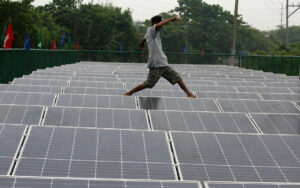Kia PHL sees stable car prices via South Korea FTA

KIA PHILIPPINES said the free trade agreement (FTA) with South Korea will help car manufacturers stabilize product pricing despite foreign exchange risks.
“There’s still going to be excise [taxes], but the import duties would be at zero,” Kia Philippines Chief Operating Officer Brian James B. Buendia told reporters on the sidelines of the launch of the Kia Sorento Turbo Hybrid last week.
When asked if the FTA could lead to lower prices for Korean cars, he noted that apart from import duties, the automotive industry closely monitors foreign exchange movements.
“There’s another issue, which is the forex. The projected forex, and we deal with the US dollar, will be up to $59. So that’s an issue, because when we were doing our budget, it was only at $57-58. So now we have to recalibrate,” he said.
“One opportunity is, yes, we will not lower the price, but we will not increase the price too even with the forex. So those are the things that are actually being studied,” he added.
Despite this, he said that the company is looking at how it can take advantage of the FTA as Kia Philippines expands its electric vehicle (EV) lineup.
“We are now also scanning for some advantages that we can maximize,” he added.
Aside from the FTA with South Korea, he said that the company hopes for the executive order (EO) for the lowered tariffs for all types of electric vehicles to be retained amid its review.
“I think what’s working for Kia now is the current tariffs. Whatever the adjustments that will be made, then we would have to plan for it again,” he said.
“But I hope they just keep it the way it is for now. Because you can’t really change the rules within the game. They just keep on changing. I hope they… just let it pass through 2028, I think,” he added.
Last year, President Ferdinand R. Marcos, Jr. signed EO 62, which modified the nomenclature and rates of import duty on various products.
A part of which covered the expansion of the reduced Most Favored Nation tariff rates of the products covered under EO 12 to other battery EVs, hybrid EVs, plug-in hybrid EVs, and certain parts and components.
It temporarily reduced tariffs on EVs to zero until 2028. — Justine Irish D. Tabile




